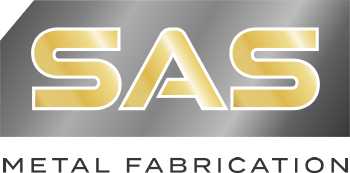We have been dedicated in our efforts to demonstrate our commitment to quality management and continuous improvement. As a result of those high standards, we have been awarded a number of accreditations. Below is a summary of the accreditations and why they are so important in this industry.
ISO 9001
- What it is: ISO 9001 is an international standard for quality management systems (QMS). It provides a framework that companies can use to ensure that their products and services consistently meet customer and regulatory requirements, and that they continually improve their processes.
- Importance: ISO 9001 is one of the most widely recognised and implemented quality management standards globally. It is applicable to any organisation, regardless of size or industry, and focuses on customer satisfaction, process optimisation, and continuous improvement. Companies with ISO 9001 certification demonstrate their commitment to high-quality standards and effective management practices.
ISO 45001
- What it is: ISO 45001 is an international standard for occupational health and safety management systems (OHSMS). It provides a framework that organisations can use to improve employee safety, reduce workplace risks, and create better, safer working conditions.
- Importance: ISO 45001 is crucial for companies that prioritize the health and safety of their employees. It helps organisations identify hazards, assess risks, and implement effective measures to prevent workplace accidents and injuries. Certification to ISO 45001 demonstrates a company’s commitment to maintaining a safe and healthy working environment.
ISO 14001
- What it is: ISO 14001 is an international standard for environmental management systems (EMS). It provides a framework that organisations can follow to minimize their environmental impact, comply with applicable laws, and improve their environmental performance.
- Importance: ISO 14001 is important for organisations that want to reduce their environmental footprint, manage waste and energy use more effectively, and enhance their corporate image by demonstrating a commitment to sustainability. Certification to ISO 14001 helps companies identify and control their environmental impact, and it is often required by customers or regulatory bodies.
ISO 3834
- What it is: ISO 3834 is an international standard that focuses on quality requirements for fusion welding of metallic materials. It sets out comprehensive guidelines for ensuring the quality of welding processes, including the competence of welding personnel, the suitability of equipment, and the adequacy of materials and procedures.
- Importance: ISO 3834 is widely recognized in industries where welding is a critical part of the manufacturing process, such as in the construction of pressure vessels, pipelines, and structural steelwork. It ensures that welding practices meet the highest standards of quality and safety, which is crucial in preventing failures in welded structures.
BSEN 1090 Welding (EN 1090)
- What it is: EN 1090 is a European standard that regulates the fabrication and assembly of steel and aluminium structures. It is particularly important in the construction industry for ensuring that structural steel and aluminium components are manufactured to the appropriate safety and quality standards.
- Relevance to Welding: BSE 1090 includes specific requirements for welding, such as the need for qualified welders, approved welding procedures, and rigorous quality control to ensure that welded joints meet the necessary safety standards. Compliance with EN 1090 is mandatory for any company producing structural steel or aluminium components for construction within the European Union.

